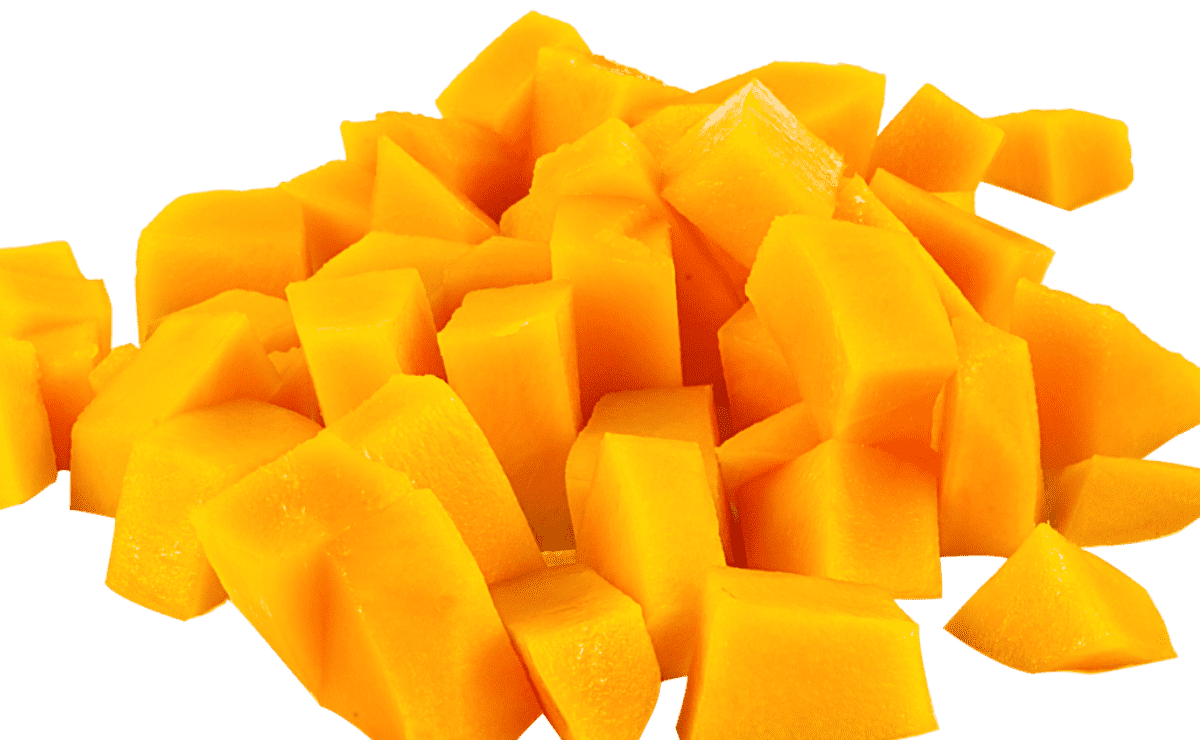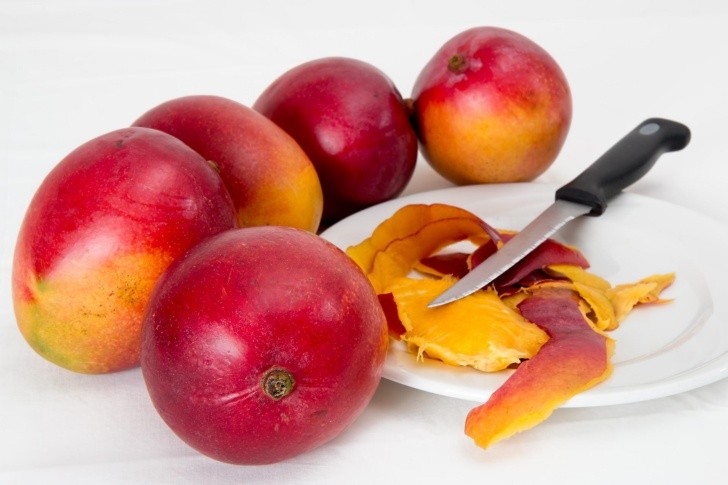
There are many good reasons to enjoy mangoes. Did you know that they contain more than 20 different types of vitamins and minerals, and are free of fat, sodium and cholesterol?
Did you know that a cup of this tropical fruit cut into pieces and about 165 grams, has only 100 calories and provides 100 percent of the recommended daily amount of vitamin C, 35 percent of Vitamin A and 12 percent of dietary fiber?
These figures from the National Mango Board or NMB organization , which promotes and investigates the consumption of this fruit in the United States, show that, in addition to having a sumptuous tropical flavor that makes food a delicious sensory experience, mangoes provide a multitude of nutrients .
In addition to being nutritious, according to the NMB this " superfruit " was first cultivated in India more than 5,000 years ago, arrived in America around the year 300-400 AD and is now available throughout the year, It is not only one of the most popular in the world, but also one of the healthiest.

In fact, the bark, leaves, skin and seed of the mango, a tree under whose shade Buddha meditated, according to legend, have been used in home remedies for centuries, according to this source.
The latest research on this fruit that reaches the US market from Mexico, Peru, Ecuador, Brazil, Guatemala and Haiti, confirms that its healing and protective benefits are still valid and are becoming better known.
Protective effect on the intestinal flora
Research from Oklahoma State University (OSU) in the United States has shown in laboratory mice that the consumption of mango-based supplements prevents the loss of beneficial bacteria from the intestine, often induced by diet high in fat
These bacteria from the gut microbiota, or flora, may play a role in obesity and obesity-related complications, such as type 2 diabetes, according to the OSU.
"This study demonstrates that adding mango to the diet can help maintain and regulate gut health and levels of beneficial bacteria," according to Edralin A. Lucas, professor of nutritional sciences at OSU and principal investigator of this paper.
Professor Lucas has also discovered that mango pulp could be useful for reducing glucose (sugar) in the blood, without producing the negative effects of some drugs commonly used to reduce it, such as rosiglitazone.
Beneficial gelatin for radiotherapy
Researchers from the Mexican biotechnology company Kuragobiotek have developed a mango jelly that they say is beneficial for people with cancer who are being treated with chemotherapy and radiotherapy.
"This dessert has a combined action, functioning as a probiotic and a prebiotic" (foods with microorganisms and vegetable fibers, respectively, that stimulate microbial activity in the intestine, benefiting health), explains engineer Antonio Cruz Serrano, executive director (CEO) of the Jalisco company.
“This gelatin contains compounds such as agave inulin and nutrients such as EPA/DHA omega 3 fatty acids from fish oil, which generate metabolic substances in the body that are involved in the elimination of cancer cells during radio and chemotherapy. ”, according to Cruz.
"This effect helps patients who follow these treatments to suffer fewer collateral disorders and to have a faster recovery," says engineer Cruz.
Electronic nose that sniffs out maturity
To take full advantage of the nutritious and healthy compounds in mangoes, these fruits must be at their proper point of ripeness, and a team of researchers from the University of Leicester in the UK have discovered a way to sniff out the ripeness of this food.
Paul Monks, Professor of Chemistry at Leicester, has developed a device, called an electronic nose, capable of sucking in the volatile compounds of this fruit and quickly identifying the unique chemical signal that indicates that it is ripe.
Professor Monks explains that one of the indicators of ripeness "is the increase in ester compounds, the aroma of some British sweets called ‘pear drops’", and adds that it is essential that people "can tell how ripe the fruit is without the need to try it”, and this technology can also be important for producers and supermarkets.
Keeping fruit in good condition
For the mango to deliver its full healing potential, it is essential that it be as healthy as possible, which is why different research centers work to preserve its quality and qualities to the maximum.
Scientists from the Institute of Biotechnology of the National Autonomous University of Mexico (UNAM) developed a biofungicide that inhibits a disease that causes black spots on this fruit, known as atracnosis, and which is based on a bacterium that is the natural enemy of the fungi that cause.
Another UNAM team led by Dr. Andrea Trejo Márquez has demonstrated the antifungal activity of steam from essential oil of oregano and eucalyptus, to control the fungi Botrytis cinerea, Fusarium sp., and Colletotrichum sp, which cause diseases in mangoes.
Researchers from the Food Department of the Mexican University of Guanajuato have designed a prototype machine to pasteurize mango pulp, preserving the food, eliminating microorganisms that damage it and preventing its oxidation, in order to use it to produce puree, nectar or juice.
The benefits of mango
The mango, a fruit of great power/Photo: Research & Development
On the other hand, the NMB organization that compiles the most outstanding research on mangoes, reports that recent research suggests:
The consumption of mangoes in adults is associated with a healthier diet reflected in a greater intake of whole fruit and nutrients such as dietary fiber, vitamin C, magnesium and potassium, as well as helping to reduce the presence in the body of C-reactive protein, related to inflammation that increases cardiovascular risk.
People who eat this fruit have a lower body weight and eat less fat than those who do not eat it.
A compound in Keitt mangoes could be toxic to breast cancer cells, reducing their proliferation and the size of breast cancer tumors.